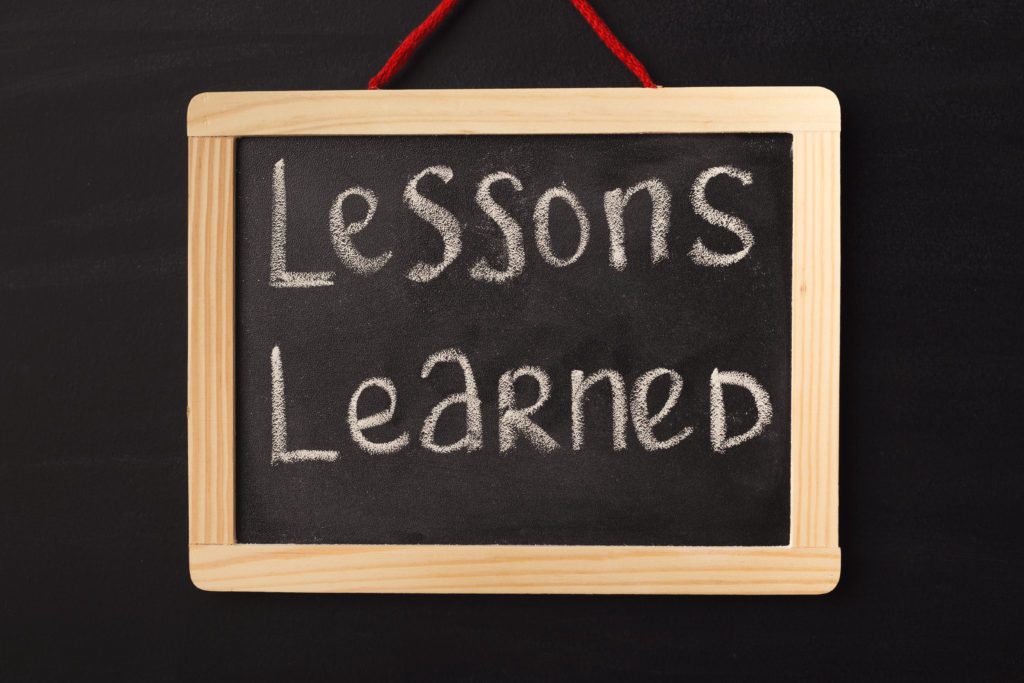
As we reach the one-year anniversary of the outbreak of COVID-19 in the United States, let’s take a look at some of the personal finance lessons this unprecedented situation has underscored. None of them are really new. It is just that the global pandemic has demonstrated how important they really are.
Leading The Wall Street Journal’s list is “Emergencies do happen. One clear lesson from the past tumultuous year is that more Americans should work to build an emergency fund of at least one month of spending. An accessible emergency fund (kept in an easy-to-access form like a savings or checking account) can help alleviate the need for drastic cuts in spending when facing temporary shocks to your income.
While an emergency fund cannot make up for losing your job and facing long-term unemployment, it can help to reduce the impact of shorter-term economic disruptions. For instance, last year many households had members who were furloughed for several weeks while governments had mandated closures of their employers.
In addition, those facing longer-term unemployment often had to wait weeks for benefit checks to start to flow in. In such cases, having several weeks or more of accessible savings can reduce the need to undertake painful spending cuts or borrow at high interest rates to make required payments.”
One of the five lessons Forbes details is “Get rid of the stuff that’s weighing you down. Perhaps one of the most profound lessons from the pandemic is clarifying what matters most in our lives. While that varies from person to person, one common thread—at least based on data compiled by Goodwill Industries and The Salvation Army—is that most of us can live with less stuff in our lives. Both organizations saw a surge in donations this spring and summer as Americans tackled closet cleaning to help stave off the boredom of weeks, or in some cases, months spent at home. For some, it was simply a long overdue task. For others, there was something deeper at play—a need to re-evaluate priorities.
It often takes a critical event or shift in our lives to refocus on what really matters to us—what serves a purpose in our lives and helps us to move closer to our goals. Whether your goal is to put your physical or your financial house in order, discarding the things and habits that no longer serve you can be transformative. If you’re looking to eliminate paper clutter, and the need to store documents in boxes or files, consider going paperless and electing digital receipt of account statements, trade confirmations, prospectuses, and more.”
Another lesson is don’t make rash decisions, particularly when it come to investments designed to help you meet your retirement goals. “Trillions were lost in stock markets around the globe in the early months of the pandemic. Many of these markets have since recovered. A key lesson to take from this is that usually, the wisest thing to do during times of extreme market volatility is to sit tight, stay the course, and consult your financial professional.” says John Foreman, Vice President, Investments at Barnum Financial Group.
The grim reality is this pandemic has resulted in nearly 2.5 million deaths worldwide. Although the elderly are particularly vulnerable, the disease did not discriminate on the basis of age. This has highlighted the value of making a will even if you are young and/or in good health. A will is an important step to assure that those you love are provided for after you die and that your final wishes are known.
On the brighter side, the pandemic has taught us that we can all be disciplined. We have had to learn how to work from home without being easily distracted by the things around us. We have come to appreciate the simpler things and have a greater appreciation for life in general. It has empowered our growth mindset, getting us to develop new talents like baking and knitting, and exploring new places through virtual tours. It has caused many to support small businesses and help those suffering food insecurity and homelessness.
Here’s to continuing to apply all of these lessons after this pandemic is finally under control.



